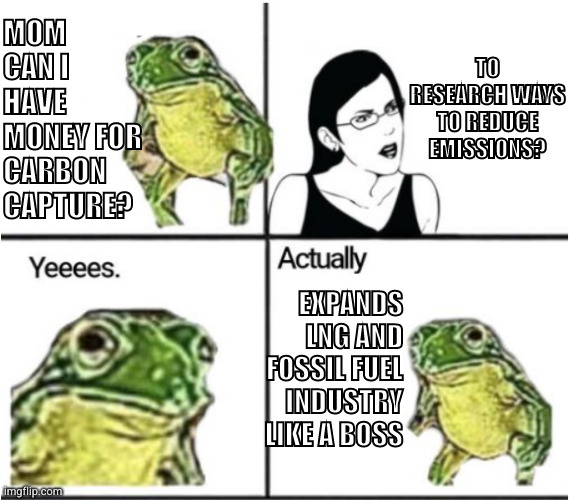I think this makes it really clear how most of the carbon capture proposals are aimed at influencing public opinion towards allowing ongoing extraction and burning, rather than actually doing much of anything.

Kind of a headache to enforce this kind of stuff when natural resource production is essentially entirely private. Why would they make any of these costly changes when they can just bank that, at some point in the next 30 years or whatever, a republican will probably get elected who will free them of the obligation?
I’ve worked in the development of a CCS plant last year. What I’ve learnt is that it is very costly, takes a lot of energy and there’s not enough economic drivers today for companies to invest in this.
This already happened with flyash and other coal byproducts. The law pointed out the shit was poison and had to be mitigated. That mitigation made coal a technology so worthless that utilities with purchase agreements were buying out coal plants just to shut them down.
Even under the huge incentives of the IRA, CCS is just never going to happen by market forces. It’s nearly a thermodynamics violation to make it work.
Which is another way of saying that the only reason fossil fuels are economical at all is because the GHG producers are not paying for their negative externalities. That they’re being massively, massively, hugely subsidized by the rest of us. It’s another way of saying something anyone at all interested in the climate already knows: we cannot afford NOT switching all energy production to renewables as fast as possible.
Time to admit that CO2, on the horizon of time, is that bad.


